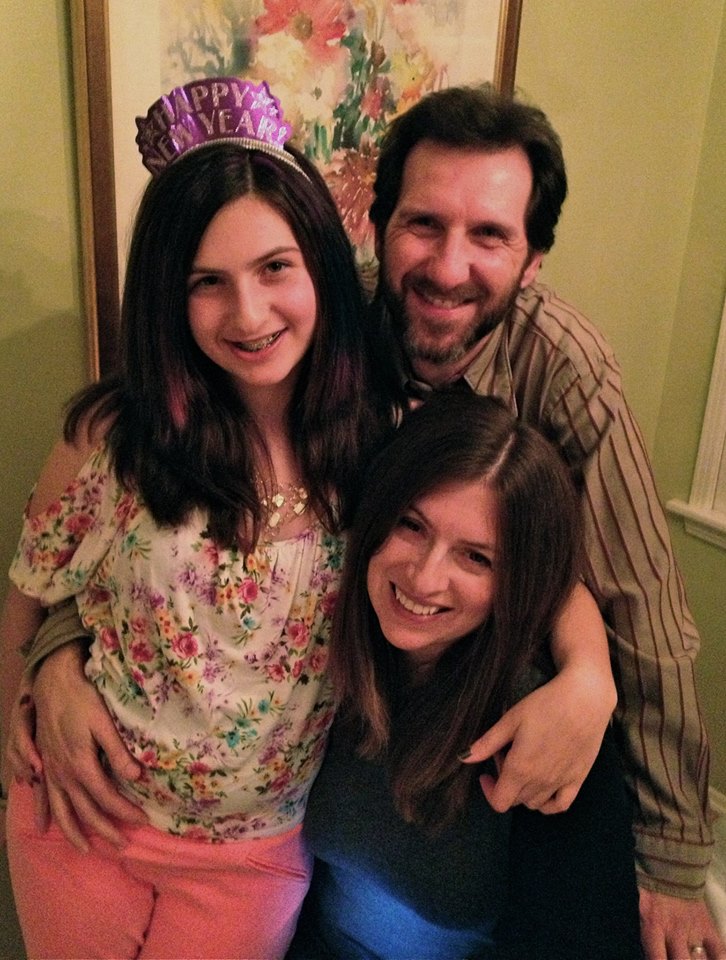The death of a spouse — particularly when you’re young and dreamed of sharing a long, happy life together — is chaotic, heartbreaking and surreal. Two years ago, when I lost my husband to West Nile Virus, getting on with my life felt nearly impossible. There were many situations when I thought “I just can’t.” For others experiencing a similar loss, here are five scenarios to prepare for — and some suggestions for facing them down with as much courage as you can muster.
Going Back To Work
Few people have the luxury of staying under the covers until the grief subsides. For most of us, going back to work isn’t an option — in fact, it may be even more of a financial imperative than ever. And comfort can be found in the day-to-day routine of your job. From waking up at the same time every day to participating in that Monday morning staff meeting to completing your office task list, the predictability of knowing where to go and what to do can feel good.
Related
Keep in mind that at first, engaging with colleagues may feel awkward — for you, and for them. There will be people won’t know what to say, or unintentionally say the “wrong” thing. So come up with a “catchphrase” for these situations. For me, “It’s nice to see you” answered everything from “How are you holding up?” to “I heard what happened…” It didn’t matter that it didn’t always make sense, people got the hint that while I appreciated their sympathy, I just wasn’t ready to engage much further.
Going Back To School
Events around the kids, if you have them, are particularly difficult as you want to be there, you need and/or have to be there, but it’s difficult for a variety of reasons. A few weeks after my husband died, there was a series of holiday concerts at my daughter’s middle school. Some people avoided making eye contact; others burst into tears at the sight of me.
Thankfully, I had friends there to protect me from the unwanted, albeit well-meaning, attention of others. Recruiting a friend or relative to join you at the school event, (or dance recital or soccer game) may help you feel less alone, plus your kid will appreciate the extra audience.
Errands, Etc.
The logistics of life don’t stop just because you’re grieving: There are still groceries that need to be purchased, a car that needs gas, dry cleaning that needs to be dropped off. Ask friends and family who offered “anything” to help with specific tasks. I once asked a friend take me to the post office to mail a simple letter. Another friend organized a meal train so that I didn’t have to worry about cooking — this lasted for months! Another friend came over once a week to help me sort through the hospital bills and medical insurance claims. She also brought trashy magazines. My advice: Start small — one task per day — and in time, the fog will start to clear, and moving forward on your own may not feel as daunting.
Socializing

The author with her daughter and late husband. (Courtesy of Melissa Gould)
Believe it or not, there will come a time when that dinner invitation or offer to see a movie or just going for a walk with a friend will sound appealing. And when it does, go — even for just an hour. I forced myself to attend the same New Year’s Eve party that we went to as a family for years. It was extremely difficult walking into the party without my husband. I quickly went into the uncontrollable “ugly cry” upon arriving, but you know what? I’m glad that I was able to keep up with the tradition — for myself and my daughter. We cried, yes, but we were able to toast in a new year surrounded by friends and loved ones. Granted, we didn’t stay as long as we normally would have, but everyone understood why.
There were other celebrations that first year though, that I deliberately opted out of (like Father’s Day with extended family) because it simply would have been too upsetting. Trust your instincts about what you can handle and make no apologies for sending regrets, leaving early or even changing your mind about attending at the last minute.
Making Decisions
When you’re grieving, even small decisions, like what to make for dinner, can feel overwhelming. So when it comes to making even bigger decisions — what to do with the personal items left behind, whether or not to sell assets —give yourself time, if you can. Soon after my husband died, my impulse was to get rid of everything: his clothes, his office, his music collection. Now, nearly two years on, I’m grateful to have kept some of my husband’s t-shirts, and even a few pairs of his socks. The thing is, small stuff can easily get lost in the big stuff, so try waiting until you know the difference.
Melissa Gould is a writer who lives lives in Los Angeles with her teenage daughter and her neurotic dog. She’s online at melissagould.net and on Twitter @TheMelissaGould.












